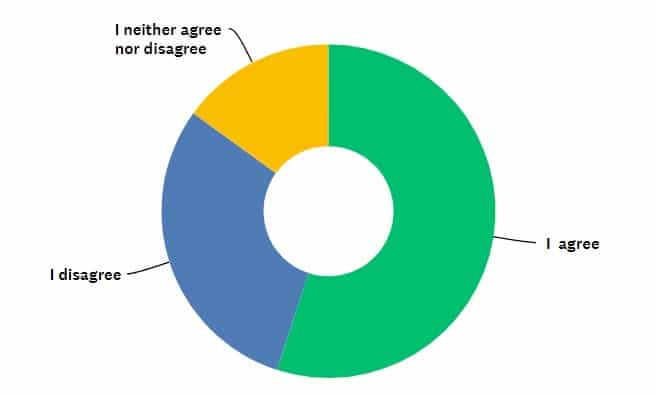
In the weeks lead-up to WBA’s 1st International Biogas Conference on 3rd-4th May, 2019, we asked our readers for their views on the role of policy vs investment in promoting biogas.
Poll question: Biogas development is not necessarily about policy and incentives but more about investment opportunities.
Readers’ vote esults:
20 votes cast
I agree — 55%
I disagree — 30%
I neither agree nor disagree — 15%

Open question: What do you think would drive biogas development?
Readers’ answers:
- Tying all stakeholders through tangible proportional contributions using global environment management, sustainable policy not confined to geopolitical or economical boundaries. The required policy must convert to legislation with credibility and enough teeth for ensuring successful implementation.
- If the project can be done and reach economies of scale
- Well established government policies
- A policy which forces otherwise wasted organic materials to be put through AD – once that policy is in place, investment will follow. Investment will not happen if there is no reason to do it (carrot or stick).
- Cost-benefit opportunities
- No fuel required to purchase and use waste organic to produce fuel gasses and or generate electricity
- A perfect contribution to our energy needs and combating climate change. There is so much waste and this can be feedstock for AD.
- Yes, for biogas to develop, resources must be mobilised to build an adequate and reliable infrastructure in order to serve the needy in a sustainable way
- Investment opportunities such as for instance local low-cost / residual biomass availability, as well as labor force versatility, play an important role in biogas development
- Yet, no substantial expansion in a biogas market can take place without the proper policies, incentives (e.g. FIT, FIP), legislative measures (e.g. framework on compulsory separation of household organic waste at the source, biomethane legislative and operative framework for introduction in natural gas grid and transport) and enforcement of existing laws on waste disposal (e.g. strict enforcement of penalties upon polluting organizations, indication of biogas plants as appropriate waste receivers)
- Opportunity for farmers or companies to invest in plant, develop their systems and commercialise/standardise the practise
- Consistent policy on waste streams from all countries
- Policy treating the renewable natural gas similarly to wind and solar
- Securing support from Engineering Council UK (e.g. through CIBSE, or IMech) by way of producing Guidance Frameworks, establishing minimum design standards, promoting CDP and accreditation schemes and also through Government investing in R&D
- The return of investment efficiency and the ability to implement this technology in large scale installation
Continue the conversation…
Vote in the next WBA poll
➤ Do you support the call for a global carbon tax to stimulate the growth of renewable energy?

